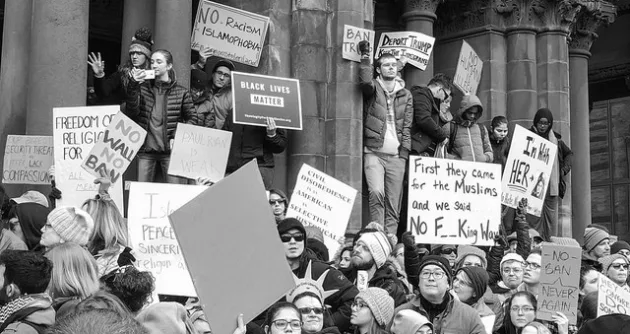Toledoans standfast behind their law protecting nature’s rights
FOR IMMEDIATE RELEASE
February 28, 2020
CONTACT:
Tish O’Dell
Ohio Community Organizer
CELDF.org
tish@celdf.org
440-552-6774
TOLEDO, OH: Yesterday, one day after the anniversary of the democratically enacted Lake Erie Bill of Rights (LEBOR), federal judge Jack Zouhary ruled to silence the voices of the people and nature by overturning the law on behalf of a corporate plaintiff and the State of Ohio.
The decision is part of an aggressive effort by judges, lawyers, corporate interests, and state governments to undermine this Rights of Nature movement and protect a system of law that has produced ecological devastation and mass inequality.
LEBOR, passed by the voters of Toledo, Ohio, in February 2019, is the first law in the United States to recognize the rights of a specific ecosystem. It is part of a growing worldwide movement to secure and protect the rights of ecosystems in the face of devastating global warming and pollution. While state and federal governments refuse to act, more communities understand they must.
In 2019, a separate federal judge acknowledged the State of Ohio has failed to protect the lake from intensifying pollution, resulting in dangerous toxic algal blooms that threaten the drinking water for 11 million people.
“Part of the 1%’s strategy is to shut down our legal options,” says Markie Miller of Toledoans for Safe Water (TSW), the group behind the LEBOR initiative. “As long as there is a Lake to protect, we won’t be going anywhere.”
“Our children’s future is on the line and you have the choice to remain willfully ignorant or take action,” says Crystal Jankowski, also of TSW.
“LEBOR made history, inspired other rights of nature laws, shifted cultural perceptions, expanded the realm of future possibilities, and advanced a critically important conversation about how we might democratically implement and enforce a system of government that elevates humans and ecosystems above profit,” says Tish O’Dell. “No judge can take that away.”
To justify his decision, Zouhary wrote that LEBOR would “injure” the two plaintiffs – State of Ohio and Drewes Farms. In doing so, he ironically explained how both plaintiffs would violate LEBOR, and thus harm the lake.
Lawyers for the plaintiffs feigned ignorance of the devastation wreaked against Lake Erie. Zouhary joined them.
“What conduct infringes the right of Lake Erie and its watershed to ‘exist, flourish, and naturally evolve?’” he asked. “How would a prosecutor, judge, or jury decide?”
“Rather than use his role as a judge to begin to interpret the ideas advanced by the people of Toledo, the judge sided with the corporate interests in an effort to shut the people down,” says O’Dell. “It is time courageous judges challenged the legal and governing systems that legalize and perpetuate harm.”
Three Toledo residents have advanced their own lawsuit against the state for negligence in allowing the degradation of Lake Erie and to enforce LEBOR. They filed an appeal in their case today.
“The region needs a multi-pronged approach to move this people’s movement for systemic change forward, and to create and enforce a system of government that protects the people and ecosystems of the Great Lakes into the 21st century,” says O’Dell.
Get in touch for: a copy of the court’s decision, resident’s lawsuit against the state, Toledoans for Safe Water’s amicus brief, the City of Toledo’s brief defending LEBOR, the transcript of oral arguments, or for any other inquiries.
About CELDF — Community Environmental Legal Defense Fund
The Community Environmental Legal Defense Fund (CELDF) is building a movement for Community Rights and the Rights of Nature to advance democratic, economic, social, and environmental rights – building upward from the grassroots to the state, federal, and international level.



